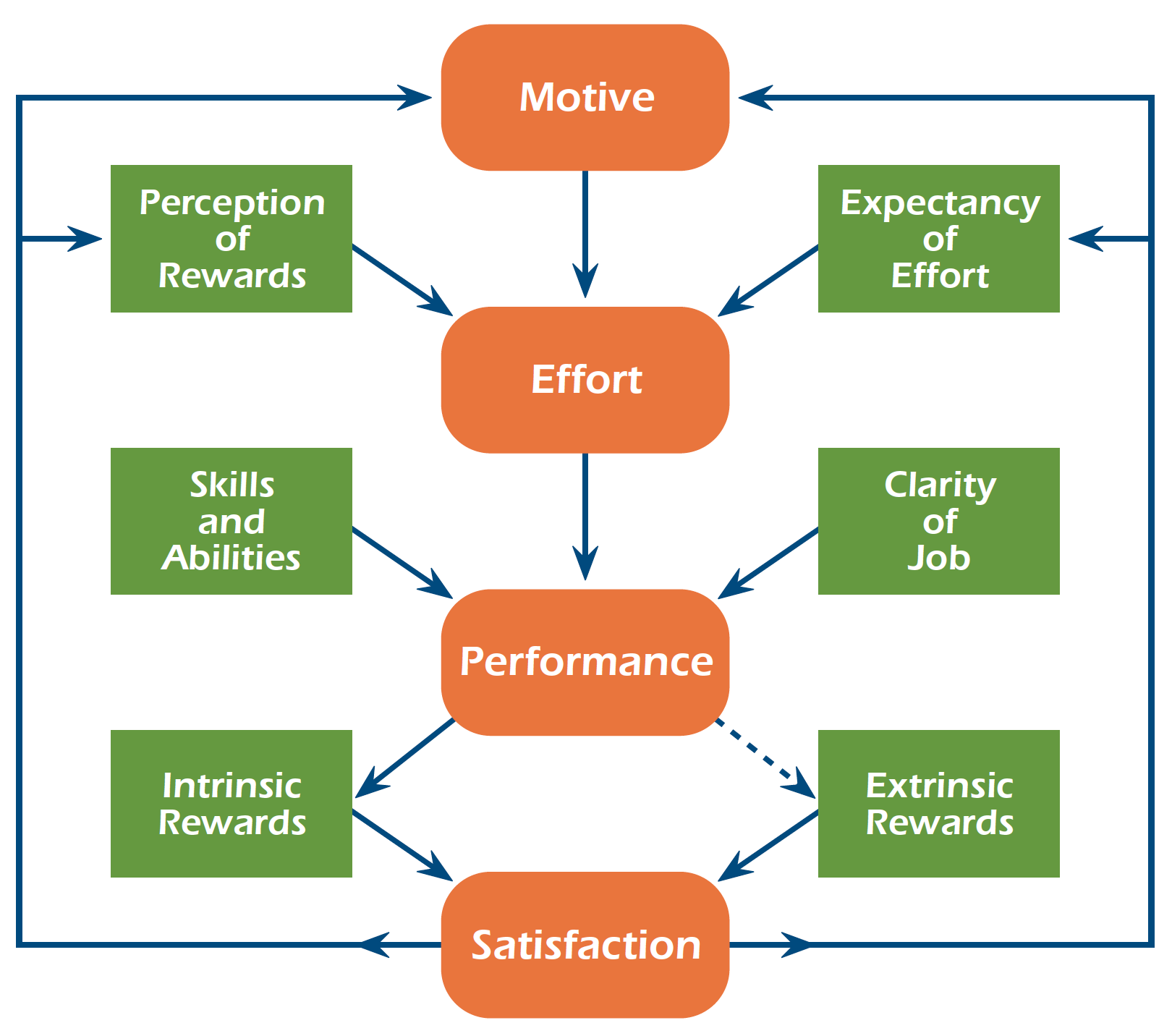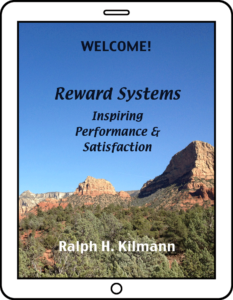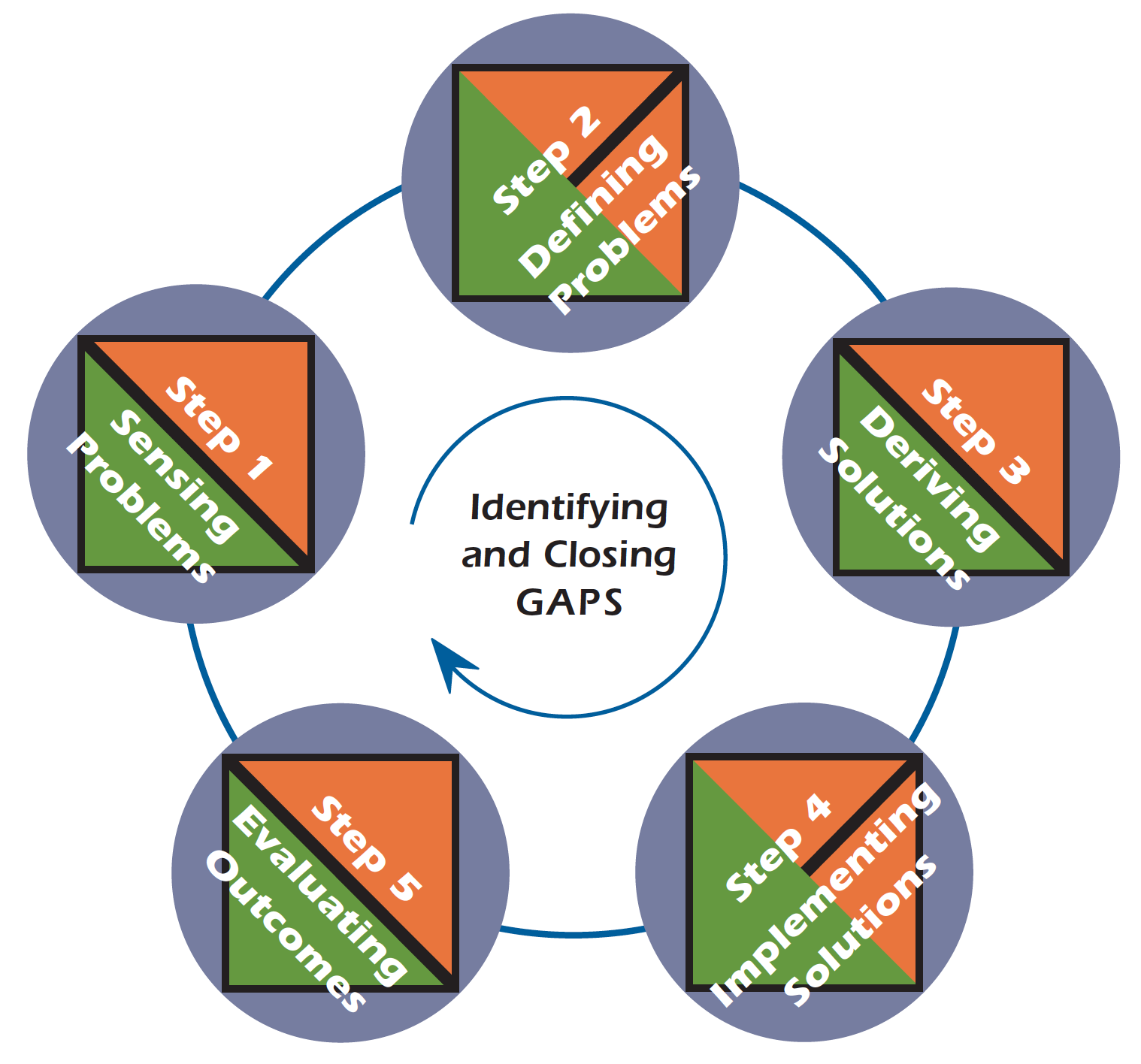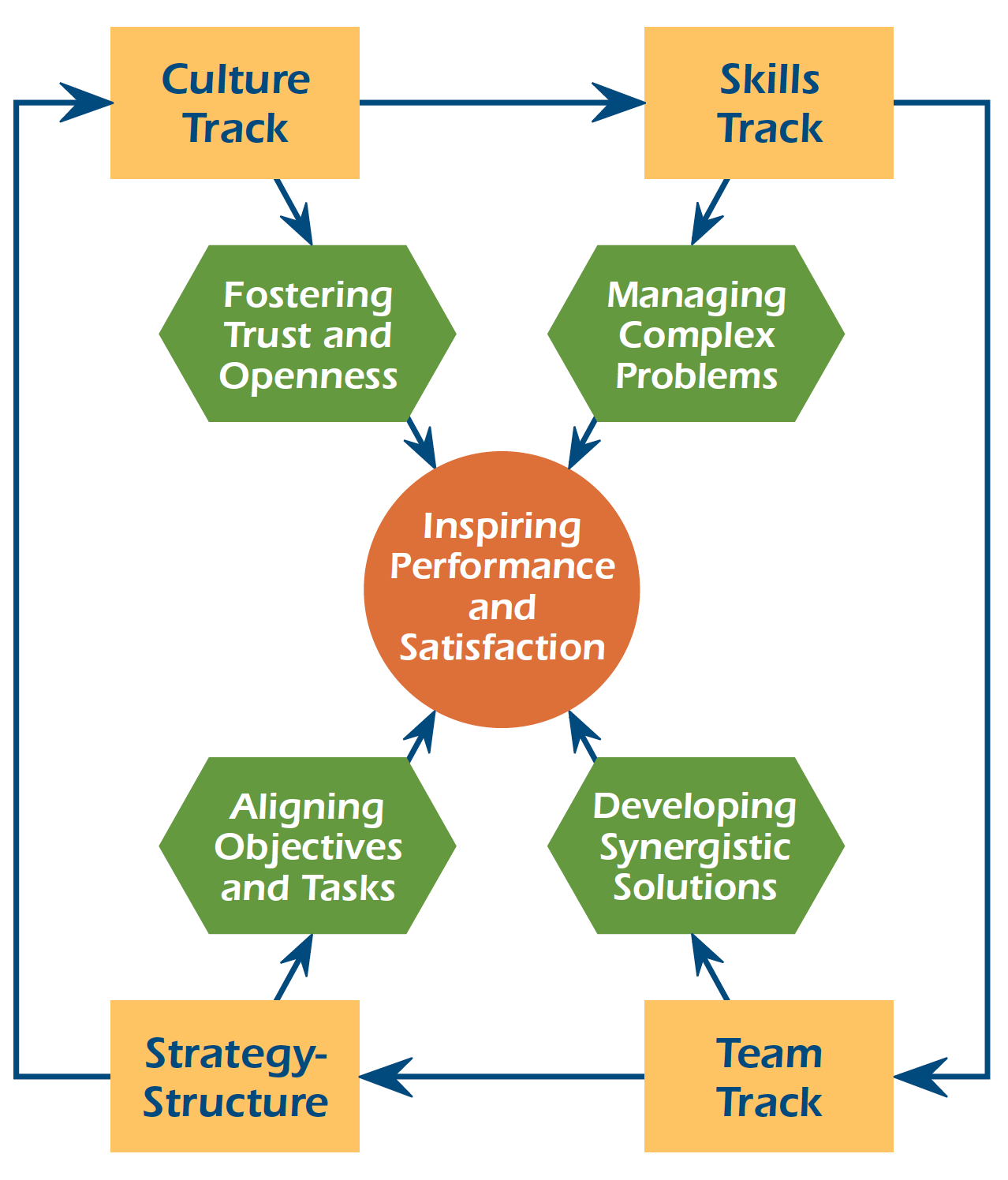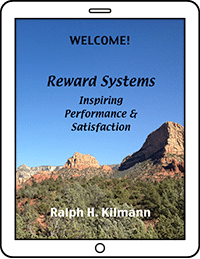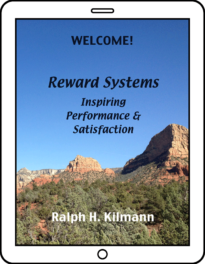How to Design Reward Systems that Will Inspire High Performance and Satisfaction While Reinforcing All Other Change Initiatives
Building on the four previous tracks in quantum transformation, in a 4-hour recorded course (including a 142-page Course Manual), you’ll learn how members can effectively self-design and self-manage the reward policies and practices in their organization, so they’ll be inspired to achieve high performance and satisfaction.
Dr. Kilmann presents the major concepts in the “Dynamic Model of Performance Cycles,” which demonstrates whether a reward system produces either a growth cycle or a vicious cycle—depending on the credibility of the reward system.
In this course, you’ll also learn how a Problem Management Organization (PMO) can be established to investigate the hidden—often false—assumptions behind several alternative reward policies and practices, so the members can design and then implement a reward system that is fully aligned with the strategic direction and structural design of their organization.
This kind of enlightened reward system can then appraise and reward members for their successfully enacting the best practices in all subsequent change initiatives… such as their success in making continuous process improvements within and between all work units in their organization. Putting the reward system behind all prior and subsequent tracks (e.g., culture, skills, teams, and process management) is the best way of ensuring that the many benefits of implementing the eight tracks will last well into the future.
RECORDED VIDEOS
take this online course on your laptop or desktop computer, or on your tablet or smartphone
90-DAY ACCESS
watch the course videos at your convenience: any day, any time, and as often as you like
COURSE MANUAL
provides a reduced image of every presentation slide with Dr. Kilmann’s additional insights
4 HOURS TOTAL
the average time for taking this online course, studying, and then passing the optional exam
Kilmann Diagnostics is dedicated to resolving conflict throughout the world, which is addressed in this online course by providing you with the deep knowledge and the practical tools for establishing a well-functioning, performance-based reward system that is rooted in accurate, up-to-date assumptions about all key stakeholders. Based on what was learned during the prior tracks of quantum transformation, self-aware members can now actively participate in designing and then implementing new reward policies and practices, which will subsequently inspire them to resolve their most challenging conflicts and problems—and thereby achieve long-term success in a fast-paced, interconnected, global village. Designing reward systems can thus reinforce all subsequent change initiatives, such as process management in the last three tracks of quantum transformation. Be prepared to experience many eureka (aha) moments!
BENEFITS OF TAKING THIS COURSE ON
DESIGNING REWARD SYSTEMS FOR ORGANIZATIONS

DOWNLOAD YOUR BEAUTIFULLY DESIGNED COURSE MANUAL: This online course comes with a 142-page downloadable manual that includes an image of every presentation slide, Dr. Kilmann's personalized notes, reference material, and space for note taking.
<u>See Sample Manual for Conflict Management Training and Change Management Training</u>
LEARN HOW TO ESTABLISH REWARD SYSTEMS THAT WILL INSPIRE HIGH PERFORMANCE AND SATISFACTION: In a 4-hour recorded course, you'll hear Dr. Ralph Kilmann's crystal-clear voice explain how members can effectively self-design and self-manage the reward policies and practices in their organization, so they'll be inspired to achieve high performance and satisfaction.

LEARN THE IMPORTANCE OF ESTABLISHING A PERFORMANCE-BASED REWARD SYSTEM: By acknowledging the extreme differences between a Newtonian and a quantum organization, and seeing how these different paradigms result in fundamentally different reward systems, you'll appreciate why only a performance-based reward system is suited for today's increasingly dynamic, highly interconnected world—where short-term results no longer predict future success.

LEARN ALL ABOUT THE KEY INGREDIENTS OF PERFORMANCE, MEASUREMENT, MOTIVATION, AND REWARDS: Dr. Kilmann asks this essential question: How does the organization motivate high performance—measured accurately—with its extrinsic and intrinsic rewards? By carefully examining the meaning of performance, measurement, motivation, and rewards, it's possible to establish a performance-based reward system that's ideally suited for long-term success in today's global economy.

LEARN ALL ABOUT A DYNAMIC MODEL OF PERFORMANCE CYCLES: You'll learn about the primary concepts that are displayed in the “Dynamic Model of Performance Cycles,” which illustrates how people's needs, perceptions, and expectations determine the amount of effort they put forth on the job. That effort, when combined with their skills and a clear understanding of what their job requires, leads to performance and—with the immediate experience of intrinsic rewards and the later receipt of extrinsic rewards—leads to satisfaction.

LEARN TO DISTINGUISH HIGH-PERFORMANCE GROWTH CYCLES FROM LOW-PERFORMANCE VICIOUS CYCLES: Based on the Dynamic Model of Performance Cycles, you'll see how a reward system produces either a growth cycle or a vicious cycle—depending on the credibility of the reward system: (1) Do members' initial perceptions of rewards match the actual availability (and receipt) of rewards? (2) Are members' expectations of what they can achieve subsequently enabled (or blocked) by the systems and managers in their organization?

LEARN HOW TO TRANSFORM YOUR ORGANIZATION’S VICIOUS CYCLES INTO HIGH-PERFORMANCE GROWTH CYCLES: Dr. Kilmann discusses how an organization can avoid the vicious cycles (where members do the minimum to get by) and can, instead, promote the growth cycles. As a result, members will be truly inspired to put forth their maximum effort and apply their relevant skills on the right tasks according to the right objectives—when the reward system has been designed to actively support every person, job, and subunit in the organization.

LEARN HOW TO USE A PMO FOR ESTABLISHING EFFECTIVE REWARD POLICIES AND PRACTICES: Making good use of all the foregoing material, a Problem Management Organization (PMO) is formed to investigate the hidden assumptions behind several alternative reward policies and reward practices, so the members can design and then implement a reward system that is fully aligned with the strategic direction and structural design of their organization.

REVIEW PROBLEM MANAGEMENT AND ASSUMPTIONAL ANALYSIS: For your convenience, in case you haven't yet taken ADVANCED Training in Conflict Management and the Critical Thinking Course, our Reward Systems Course includes a brief review of the key steps and stages of problem management and assumptional analysis.
WHY TAKE THIS COURSE ON
DESIGNING REWARD SYSTEMS
FOR ORGANIZATIONS?
This course provides you and your clients with the deep knowledge and practical tools for establishing an effective, performance-based reward system that is rooted in up-to-date assumptions about all key stakeholders. Based on what was learned during the prior tracks of quantum transformation, self-aware members will now be able to actively participate in self-designing and then implementing new reward policies and practices, which will subsequently inspire them to resolve their most challenging conflicts and problems—and thus achieve long-term success in a fast-paced, interconnected world. This course is relevant to these OCCUPATIONAL IDENTITIES:
Purchase this Online Course
Only for Yourself—
Not for Anyone Else
When you click on the button at the bottom of this section, you’ll be adding this online course—only for yourself—to your Shopping Cart, which you can then proceed to purchase on this website.
CAUTION: If you wish to purchase this course either for 1 other person or for a group of people—which might also include you along with the other members in your group—go to the next section on this page that’s designed for that specific purpose.
The price for the 4-hour Reward Systems Course is $400. If, at some later time, you’d like to upgrade to The Complete Program of all our online courses, you’ll receive full credit for this purchase price through our Upgrade Path.
When you complete the purchasing process, you’ll have instant access to this recorded online course for 90 days. During this access period, you can (1) log into your private account, (2) download the Course Manual, and (3) watch this recorded course as often as you like… so you can learn a highly participative—and effective—process for designing reward systems in organizations.
Refund Policy: As stipulated in All Our Policies, since it isn’t feasible for you to return those intangible (electronic) course materials back to us once they’ve been placed in your private account, we do not provide any refunds—in whole or in part—for any of these individual purchases of our online courses.
To test your mastery of this course, take and pass the Final Exam, which is included in your purchase. Although we do not offer a “certificate of achievement” for the Reward Systems Course, passing this Final Exam counts toward earning your Certification in Conflict & Change Management with the Thomas-Kilmann Instrument, if you subsequently upgrade to our course collection: The Complete Program of All Our Courses.
TO PURCHASE 1 COURSE ONLY FOR YOURSELF:
Purchase this Online Course
For 1 Other Person—
Or for a Group
When you click on the button at the bottom of this section, you’ll be adding this online course to your Shopping Cart. In this section, you can make a purchase either for 1 other person or for a group of people (which, if you choose, can also include you).
However, this online course will not be placed in your private account—unless (and not until) we receive your KD_Spreadsheet that includes your relevant information along with the same required information for the other members in your group. See the section below: Completing Your KD_Spreadsheet.
CAUTION: If you wish to purchase this online course only for yourself (not for anyone else), go to the other section on this page that’s designed for that specific purpose.
The price of the 4-hour Reward Systems Course for 1 to 4 persons is $400 each. The price of this course for 5 or more persons is $325 each.
In the Quantity text box below, enter the number of online courses that you wish to purchase for a group of participants (or leave the default as 1, if you are making this purchase for just 1 other person). If you add the quantity of 5 or more courses to your Shopping Cart, the total charge for your purchase will be based on the discounted rate.
Then click on the button, ADD TO CART, so you can proceed to purchase this course for the specified number of persons.
Completing Your KD_Spreadsheet
After you’ve made your quantity purchase, be sure to download the KD_Spreadsheet for Creating Group Accounts and carefully follow the instructions.
For example, if you bought this course for 1 other person, fill out the spreadsheet for just that 1 person. If you as well as other persons will each be taking this online course, please make sure to also include YOUR information on the completed KD_Spreadsheet.
When you send your carefully completed KD_Spreadsheet to info@kilmanndiagnostics.com, please include the date when you would like us to import your spreadsheet into our website.
From that moment we import your spreadsheet, the one or more listed persons are automatically assigned this online course in their existing (or newly created) private account. At the same time we import your spreadsheet, our website also emails the listed persons their log in credentials and instructions for accessing this online course.
For the stipulated access period of 90 days, the participants in your group can then (1) log into their private account, (2) download the Course Manual, and (3) watch this recorded online course as often as they like… so they can learn a highly participative—and effective—process for designing reward systems in organization.
Refund Policy: As stipulated in All Our Policies, since it isn’t feasible for your clients to return those intangible (electronic) course materials back to us after they were assigned to each client’s private account, once we have imported your spreadsheet, we do not provide any refunds—in whole or in part—for any of our online courses.
Blended Learning and Passing the Final Exam
To learn how the members of any work group can blend this online course with live discussions, we provide these detailed steps: Blended Learning for the Reward Systems Course.
To ensure that your client or group members have learned all the relevant material in this course, you can require them to take and pass the Final Exam.
PROCEED WITH YOUR QUANTITY PURCHASE FOR 1 OTHER PERSON…OR FOR 2 OR MORE PARTICIPANTS IN A GROUP (WHICH CAN ALSO INCLUDE YOU):




